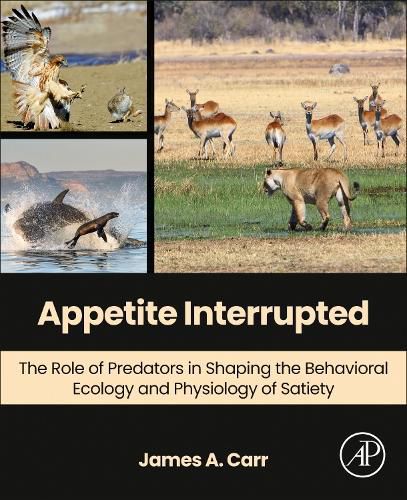Readings Newsletter
Become a Readings Member to make your shopping experience even easier.
Sign in or sign up for free!
You’re not far away from qualifying for FREE standard shipping within Australia
You’ve qualified for FREE standard shipping within Australia
The cart is loading…






Appetite Interrupted: The Role of Predators in Shaping the Behavioral Ecology and Physiology of Satiety explores how mechanisms suppress feeding in vertebrates within both physiological and ecological contexts. Highlighting predation's role as a selective pressure, the book identifies novel neuroendocrine pathways through future research. Written by an expert, it systematically examines the behavioral ecology, evolutionary pressures, physiological processes, and stressors affecting foraging and feeding behaviors in vertebrates. The book covers why animals stop eating, selective pressures driving the evolution of hunger suppression mechanisms, and physiological controls inhibiting feeding, including stress, anxiety, and fear.
It concludes with humans' pathways and obesity evolution, offering practical applications for human nutrition.
$9.00 standard shipping within Australia
FREE standard shipping within Australia for orders over $100.00
Express & International shipping calculated at checkout
Stock availability can be subject to change without notice. We recommend calling the shop or contacting our online team to check availability of low stock items. Please see our Shopping Online page for more details.
Appetite Interrupted: The Role of Predators in Shaping the Behavioral Ecology and Physiology of Satiety explores how mechanisms suppress feeding in vertebrates within both physiological and ecological contexts. Highlighting predation's role as a selective pressure, the book identifies novel neuroendocrine pathways through future research. Written by an expert, it systematically examines the behavioral ecology, evolutionary pressures, physiological processes, and stressors affecting foraging and feeding behaviors in vertebrates. The book covers why animals stop eating, selective pressures driving the evolution of hunger suppression mechanisms, and physiological controls inhibiting feeding, including stress, anxiety, and fear.
It concludes with humans' pathways and obesity evolution, offering practical applications for human nutrition.